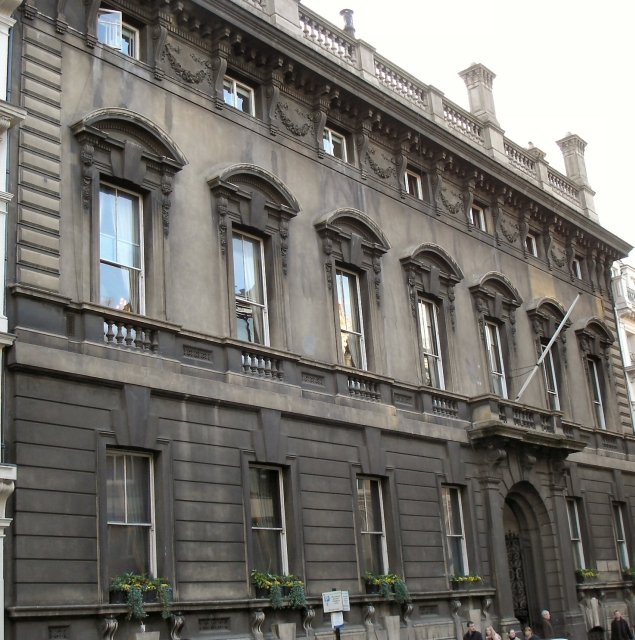 The Garrick Club of Covent Garden is one of the oldest members’ clubs in the world, playing host to such artistic luminaries as Laurence Olivier, Charles Dickens, A.A. Milne, and my own dear Dante Gabriel Rossetti, who generally couldn’t be bothered to turn up until everyone else was half-asleep. Today, the waiting list is supposedly seven years long. New members must be proposed by existing ones. Objectionable men may be admitted, but no bores.
The Garrick Club of Covent Garden is one of the oldest members’ clubs in the world, playing host to such artistic luminaries as Laurence Olivier, Charles Dickens, A.A. Milne, and my own dear Dante Gabriel Rossetti, who generally couldn’t be bothered to turn up until everyone else was half-asleep. Today, the waiting list is supposedly seven years long. New members must be proposed by existing ones. Objectionable men may be admitted, but no bores.
I was lucky enough to come across a stained old member’s list, compiled by the Reverend R.H. Barham and printed privately in 1898, long after his death. Why was it only published after his death, you wonder?
You’ll see.
The name Reverend Barham may not ring a bell, but his pseudonym Thomas Ingoldsby might. Ingoldsby was the author of a collection of myths, ghost stories, and poems based on – and often parodying – real medieval tales.The Ingoldsby Legends were hugely popular from the late 1830s, and Barham became one of the original members of the Garrick Club, where “actors and men of refinement” could mingle and connive into the wee hours.
Even half a century after his death, Barham’s family did not wish for the Reverend’s private list of Club members, their foibles and indiscretions to ever be published. Indeed, the eventual publishers printed only 240 copies in New York, because to publish in Britain would be “an offence against good taste”.
So without further ado, here are a few notable Club members, from Barham’s own private burn book.
Adolphus, John, Esq., F.S.A., Barrister
He was a man full of anecdote, but occasionally very rude, which made him, although very eloquent, also a very unpopular member at the Bar, and unquestionably prevented his rising to the highest rank in his profession.
Allen, Viscount
Commonly called ‘Cantankerous Allen’ from a slight twist in his temper.
A regular scamp. Having spent every shilling he was worth while Captain Anstruther, he was at dinner on bread and cheese with half a pint of porter, at the Brown Bear, a flash house in Bow Street, when he saw in the paper the death of his cousin, the young baronet, who was killed by some accident while a boy at Eton. This event gave him a baronetcy and an entailed estate of several thousand a year, all of which that he could touch was gone in less than two years.
Arnold, Samuel James, Esq.
I saw him the morning after his theatre was burnt down, by which he lost £60,000, and never saw a man meet misfortune with such equanimity. He was one of the leading members of the Beef Steak Club, where he was called The Bishop and used to say a mock (but not profane) grace in a large white mitre. Latterly he took to drinking spirits and water till he became quite a sot.
Beazley, Samuel, Esq.
He was the only bearable punster I ever knew.
Beloe, William Rix, Esq.
In 1834, while preparing for a day’s pheasant shooting at the country house of Cartwright the dentist, and drying his gunpowder, an officious servant with a candle ignited it and blew him up, in consequence of which he was obliged to submit to the amputation of his right arm.
Bidwell, Woodward, Esq.
A gentlemanly, good-humoured man, but ultra Tory in his politics, which he was always talking about.
Blood, Michael, Esq.
A surgeon of Mount Street, Gosvenor Square and one of the sweetest as well as most scientific amateur singers I ever heard.
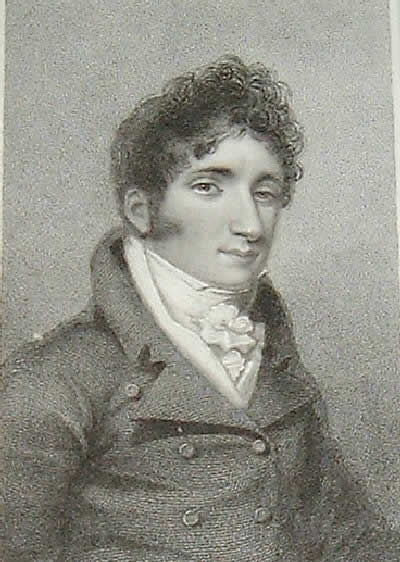 Braham, John, Esq.
Braham, John, Esq.
The celebrated singer. I more than once met Braham at his house, and once had nearly offended him by a villainous pun. He had drank too much and began boasting of his amorous successes. “I must be candid,” he said. “I am always hunting the girls.” “No wonder you have so fine a voice, as by your own account you are candied horehound personified.”
Calcraft, Granby, Esq., M.P.
He married Miss Love the actress, but it is said he was never admitted to the privileges of a husband by his wife, who very soon after the wedding eloped with Lord Harborough, by whom she afterwards had two children.
Carlton, The Hon. R.
A clergyman, and apparently half-crazy.
Darby, Elde, Esq.
The brother-in-law of Lord Allen, with whom he was at feud. He was much abused by he Satirist newspaper and taxed with having been a government spy receiving douceurs from both parties. He had lived long in France and in conversation frequently affected to have forgotten his English.
De Roos, Lord
A man very much liked and very popular, but being convicted of cheating at whist and marking the cards got out of society. Lord Chesterfield saying after the trial that he had called upon him nevertheless and left his card, “Did he mark it?” asked Hook. “No!” said my Lord fiercely. “Of course not,” said Poole, “he did not consider it an honour.”
Douglas, Joseph, Esq., Barrister
A member of the Committee and a very gentlemanly man, but fond of the bottle. Used to go to the Northern Circuit and sing Northern songs – after a fashion.
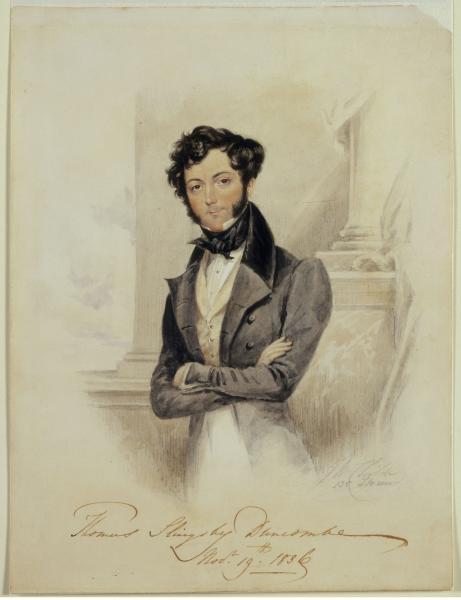 Duncombe, Thomas S., Esq., M.P.
Duncombe, Thomas S., Esq., M.P.
Feb 15th, 1833. Mr Duncombe was behind the scenes at Drury Lane when Mister Westmacott, the proprietor of the Age, Sunday paper, came up to him and asked him how he did. “I am surprised, sir, that you should think of addressing me when you are abusing me constantly in your paper, and I desire that when you do speak to me you will take off your hat.” At the same time he himself removed W’s hat from his head and threw it on the ground. W drew off his gloves on which D clenched his fists and struck him twice on the face, when the persons present interfered
Ellis, Charles, Esq.
A half mad attorney, who was constantly drunk and as constantly quarrelsome, though very good natured during his few intervals of sobriety.
Foster, John
A low scribbler, without an atom of talent and totally unused to the society of gentlemen. He narrowly escaped expulsion from publishing an account of a dinner at the Garrick in a newspaper to which he was a reporter. The Committee wrote him a letter on the occasion expressive of their disgust which would have caused any other man to retire. About a year after, he got beastly drunk and was sick in Sergeant Talfourd’s pocket. Tom Duncombe got drunk at the same time, but behaved so differently that Poole observed one was the real gentleman drunk and the other the ‘spewrious’ gentleman drunk.
Gaspey, Thomas, Esq.
Proprietor and editor of the Sunday Times newspaper. A low-bred, vulgar man brought in by Jerdan.
Gordon, Robert, Esq., M.P.
Commonly, B–m Gordon.
The celebrated duellist.
Mulgrave, Earl of
President of the Club. In 1834 he went Lord Lieutenant to Ireland, having previously been Governor of Jamaica, whence he sent the Club a turtle.
Osbourne, Frederick K., Esq., Barrister
A very disagreeable, overbearing, rude man, and generally cut on the Circuit.
Sheridan, Richard Brinsley, Esq.
Ran away with Miss Grant, daughter of Sir Colquhon Grant.
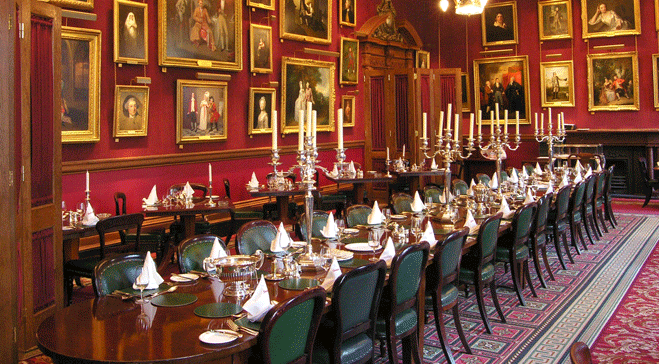 Men of refinement, indeed. Who’s your favourite?
Men of refinement, indeed. Who’s your favourite?

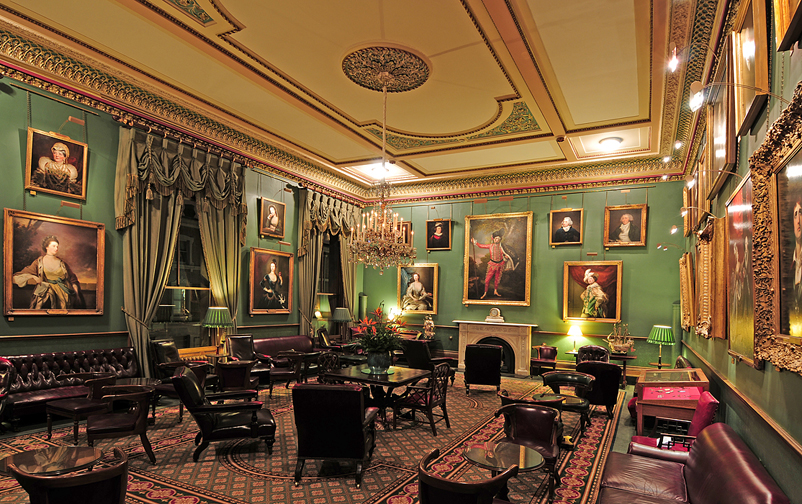
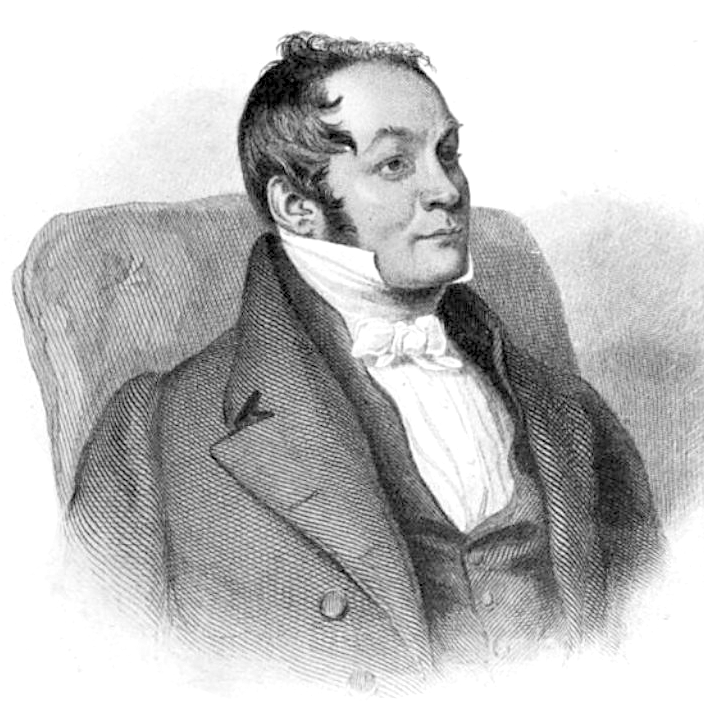
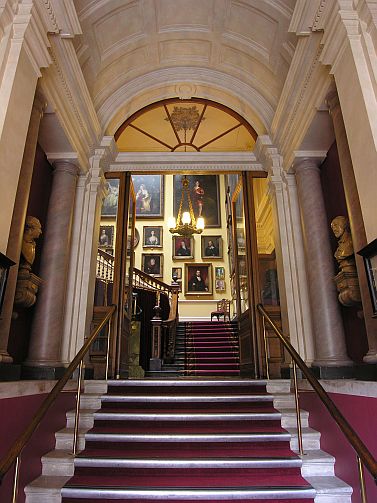
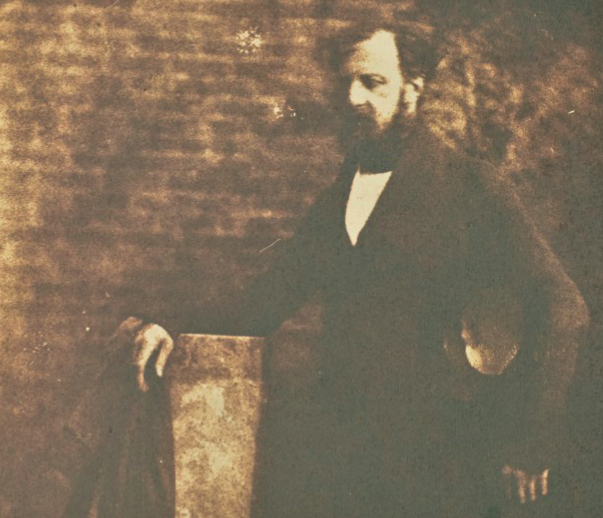


My favourite thing of this week.